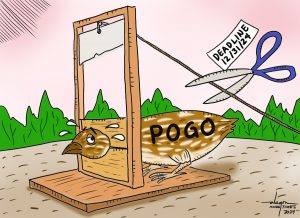The use of plastics and its impact to the environment especially due to our reckless disposal habits has been one of the major issues we are confronting. Flooding in the city due to congested waterways, deaths of marine animals and just the sight of so much trash seen in open canals, all point to the fact that the wanton use of plastic will come back to haunt us.
We could not recycle plastics fast enough. And those that are thrown to the sea become more hazardous to humans as they break down and turn into microplastics which are invisible to the naked eye. These can come from large plastics or from cosmetic products such as facial cleansers and toothpaste that we all use.
A study on green mussels or “tahong” by Dr. Dr. Jose Isagani Janairo from the De La Salle University in coordination with the Philippine Department of Science and Technology (DOST) showed that the Philippines tested positive for microplastics. This study was conducted on three samples across three different locations, two of which were tested positive for microplastics while the third set tested positive for “suspected microplastics.” Plastics present in the samples were identified as Polyethylene or PET commonly used in plastic water bottles and also on textiles.
This is a cause of concern especially because we are archipelagic and the sea is the source of livelihood and food for so many Filipinos. Yesterday, the Bureau of Fisheries and Aquatic Resources (BFAR) in the region assured the public that greenshell mussels are safe for consumption in Davao region except those coming from Balite Bay in Mati City due to red tide alert. Even then, BFAR regional director emphasized the urgent need for the public to be responsible with their garbage.
The use of plastics has become a scourge across the world. The ocean is choking on garbage, marine creatures are dying, coupled with climate change, the earth is in grave threat of extinction. Let’s be serious in facing this problem one step at a time, consistently, like banning the manufacture and use of plastic straws and other products. Now.


